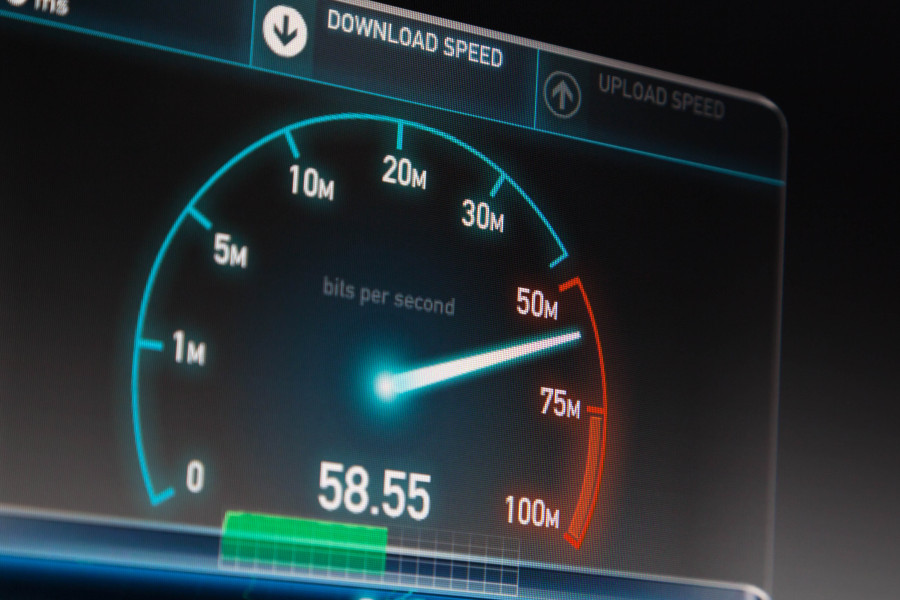Money
Internet subscribers up but speed remains a problem
Consumer rights activists say speed of internet is not as service providers had advertised and the telecom authority should be more vigilant.
Krishana Prasain
While the number of internet users continues to grow across the country, the quality of internet speed available to consumers has not been consistent, say consumers.
Poor internet service has been observed particularly during these past few months. Internet service providers said that problems with internet speed is because of issues with international bandwidth, different servers and mobile apps, and with more and more people using the internet during the lockdown and prohibitory orders.
“Internet usage has increased during the pandemic lockdown with people staying at home and performing activities like office work and conducting classes, meeting, seminar remotely, increasing use of e-commerce and digital payment,” said Min Prasad Aryal, director at Nepal Telecommunication Authority.
Within the past fiscal year, internet service providers’ subscribers have increased by 1.4 million to 4.4 million. The total broadband users increased by 8.56 percent in the fiscal year 2019-20 compared to 2018-19, mostly data-centric apps than voice-centric usage, according to the latest management information report by Nepal Telecommunication Authority.
The total number of internet users was 19.4 million which is 65.87 percent of Nepal’s population last fiscal year and it is 22.2 million, which is 74.43 percent of the population, at the end of fiscal year 2019-20.
The total fixed broadband users wired was 13.41 percent at the end of 2018-19 and this grew to 18.35 percent of the population in fiscal year 2019-20. Similarly, mobile broadband was 51.64 percent and increased to 55.30 percent during the same period.
The report shows that the number of Nepal Telecom broadband users has increased by 1.4 million to 10 million, while Ncell broadband subscribers have declined by 58,608 to 6.7 million.
Madhav Timilsina, president of Consumer Rights Investigation Forum, said that despite the increase in consumer numbers, they are not getting quality service because of a lack of proper inspection by the Authority. “Consumers are being mostly cheated from the internet from the service sector,” he told the Post.
Timilsina said that he has been receiving more than 12 complaints through phone calls daily regarding the internet problem. The complaints are generally regarding internet service providers’ compromising in quality by not providing speed as promised, he added.
As per the internet standard bylaw, the internet bandwidth must be 75 percent of provided bandwidth by the service providers, said Aryal. If the service providers do not provide according to minimum guaranteed speed then customers can make complaints to the service providers.
Ananda Raj Khanal, a telecommunication expert, added that the issue with poor internet speed could also be tied to the routers, which are mostly provided by the service providers and are low-quality routers that cause slow internet speed. "The service providers should not ignore the fact," he said.
Internet service providers also say the slow internet is a result of excessive use of social media sites. "Currently the internet is slow due to massive use of TikTok, and other sites like Facebook and YouTube," said Binay Bohora, managing director of Vianet Communications.
At present, 80 percent of internet utilisation is in video and this trend is on the continuous rise. It will be challenging for the internet service provider to provide quality internet in the coming days, he said.
“The issue with slow internet will never end as the service provider has to import bandwidth from India”.
Internet service providers admitted that unhealthy market competition has also been a reason for customers not getting quality internet.
Binay Mohan Saud, CEO of Subisu Cable, says in many cases customers' complaints are justified. “Due to fierce competition, some internet service providers might be offering more mbps than their actual capacity," he said, which makes some internet service providers more efficient than others.
Despite high utilisation of internet service providers don't have the infrastructure and equipment to manage it, said Bohora.
He said that if a customer used to utilise about 300 Gbps internet per month before the lockdown, s/he uses 500-600 Gbps now, he said. Individual use of Google has increased by 37 percent, Facebook by 72 percent and TikTok by more than 75 percent during lockdown, he said.
"The demand has increased beyond our capacity due to which equipment gets out of service," he said. It takes time to bring the equipment from other countries, and there is also a lack of manpower, he added.
"The problem of slow internet speed can be reduced if Nepal has bigger servers," he expected. But this would need massive investment.
Service providers may have their excuses but it is also the responsibility of the regulating authority, consumer, activists said.
“It is the responsibility of service providers and the regulating body to inspect to check whether the service is being provided as per the agreement or not,” said Timilsina of the Consumer Rights Investigation Forum.




 20.12°C Kathmandu
20.12°C Kathmandu














